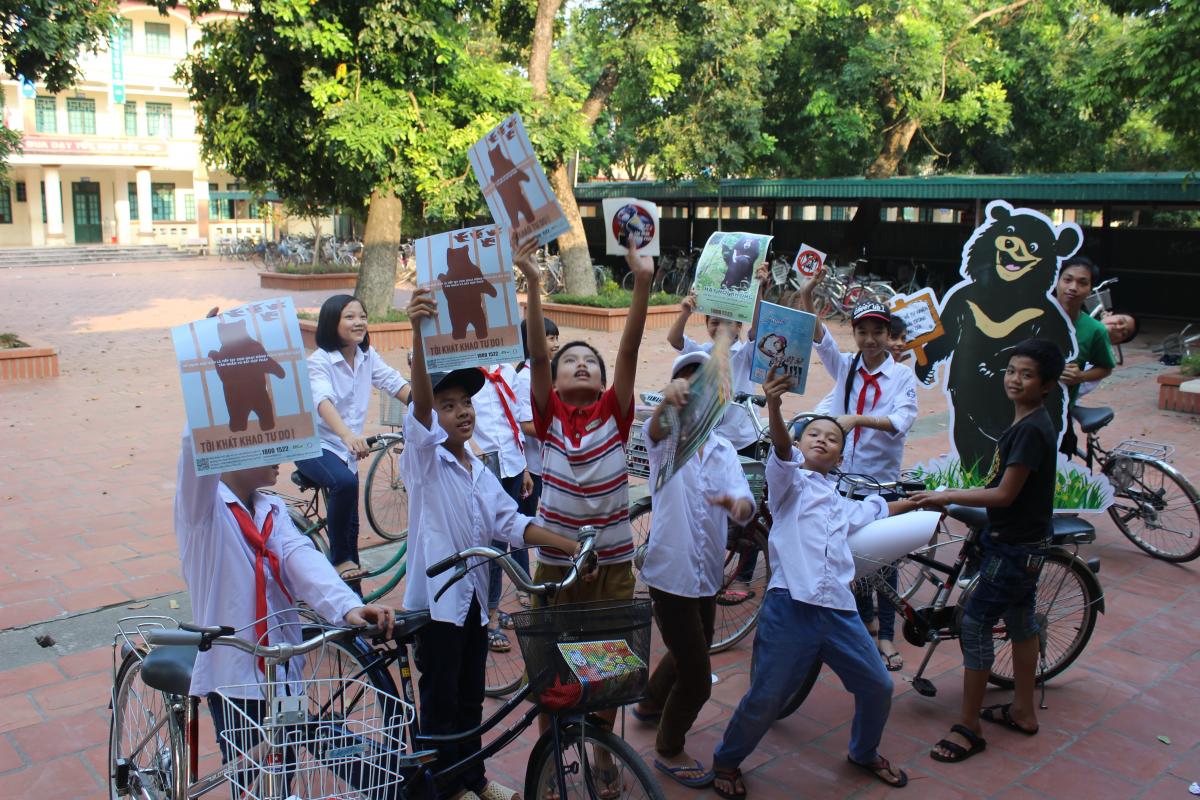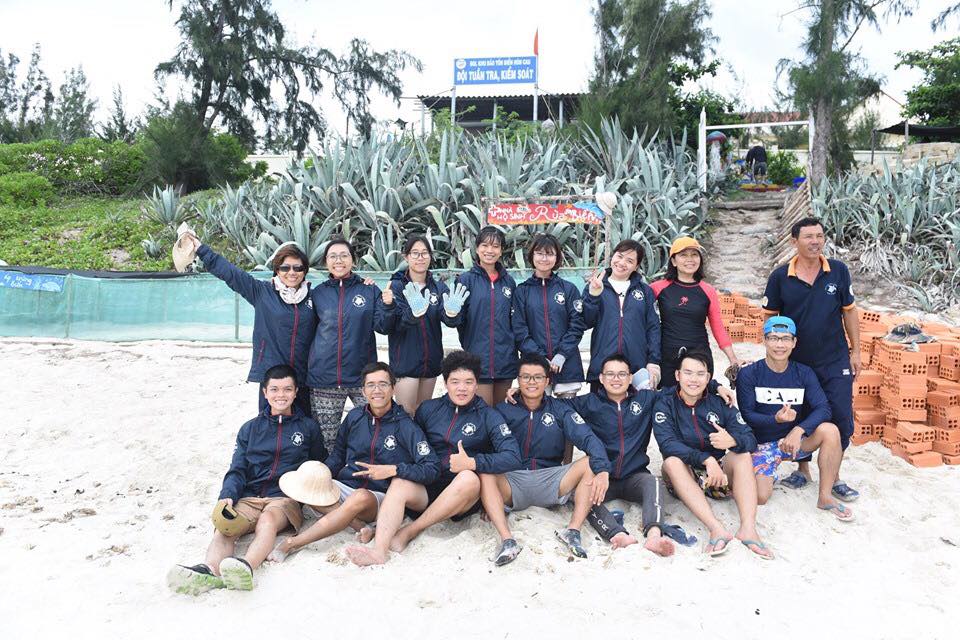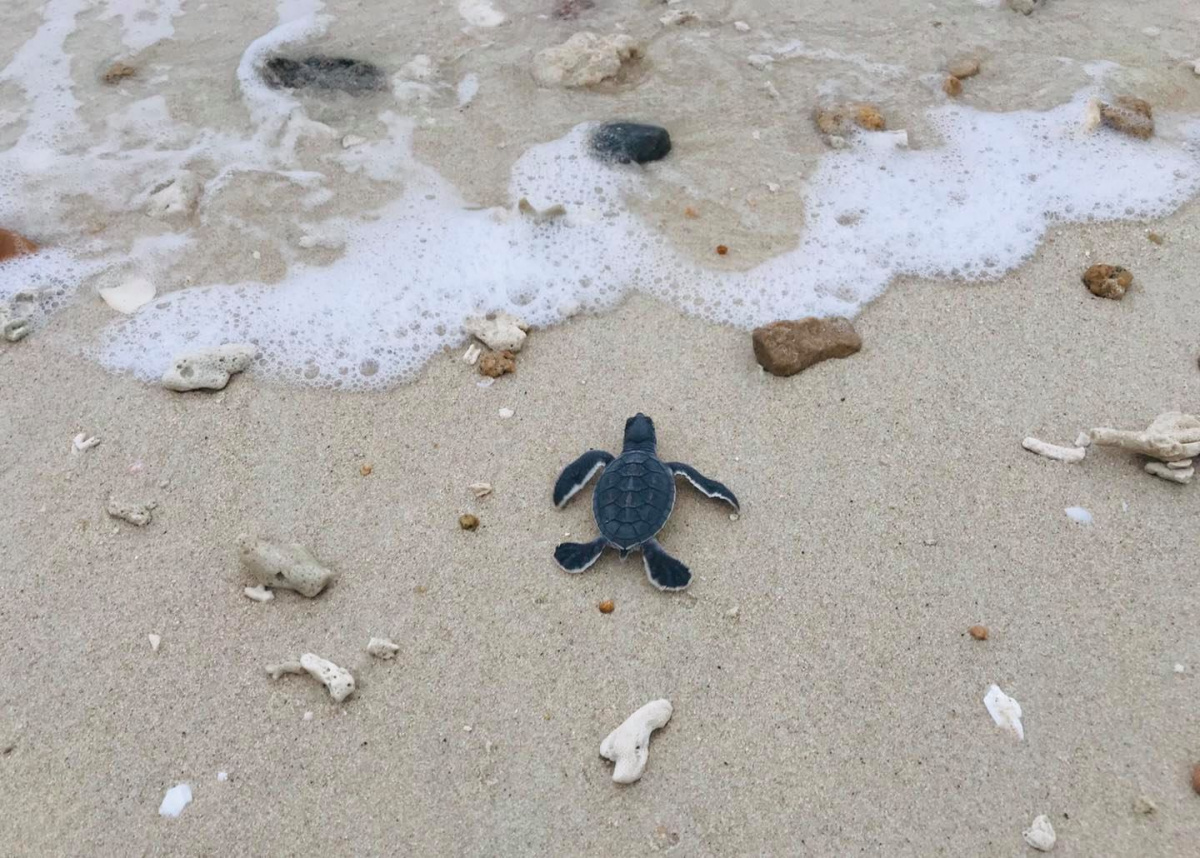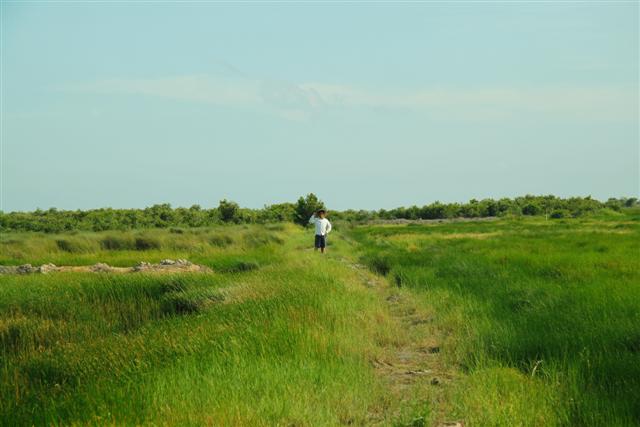Viet Nam’s youth raises its voice against illegal wildlife trade
It’s almost a cliché to say that an organisation’s greatest asset is its people. But for Education for Nature – Vietnam (ENV), there is ample evidence that there is truth behind the expression.

Education for Nature – Vietnam's Wildlife Protection Network organises events for children
Photo: © Education for Nature – Vietnam
ENV’s National Wildlife Protection Network, comprising over 6700 volunteers spread over 59 provinces, is literally ENV’s eyes, ears and voice on the ground for protecting wildlife. The volunteer network engages with the public in a number of ways to raise public awareness of the illegal wildlife trade and the need to protect Viet Nam’s as well as the world’s biodiversity.
Some of these activities include using art to educate children about wildlife, and convincing senior citizens that bear bile and rhino horn are not ‘magic cures’ for ailments.
In 2016, for example, the wildlife protection volunteer clubs held 122 public awareness events, where over 30,700 individuals made a pledge not to consume wildlife products.
While education and raising public awareness are major components in reducing consumer demand for wildlife and wildlife products, they are only part of the solution. ENV firmly believes that both the demand and supply side of the equation needs to be addressed in order to stop illegal wildlife trade in its tracks.
It is in this context that ENV thinks that the youth need to raise their voices in order to protect endangered wildlife and play a pivotal role in the monitoring and detection of wildlife crime.
With support from IUCN and the Critical Ecosystem Partnership Fund (CEPF), ENV has been able to fund and train the volunteer network and ensure they can have a huge impact in fighting wildlife crime.
In the past two years, ENV volunteers have monitored 4226 establishments throughout Viet Nam, from restaurants to marketplaces, to traditional medicine shops, cafes and karaoke bars, keeping a lookout for violations. The volunteers also conducted follow-up checks on areas where wildlife crime had occurred. In the course of this painstaking work, 372 new crimes were reported by the volunteers.
Just recently during the TET (Vietnamese Lunar New Year), one volunteer came across three animals – a macaque (listed as Vulnerable on The IUCN Red List of Threatened SpeciesTM), a leopard cat and a python being kept illegally, whilst visiting a restaurant and a woodcraft shop. The volunteer then reported the incident to the ENV wildlife crime hotline resulting in authorities confiscating the wildlife.
ENV is proud of their army of volunteers. These incredible young people work very hard to help turn around Viet Nam’s international reputation as a major consumer, supplier and transit hub for illegally trafficked wildlife. On World Wildlife Day, ENV would like to thanks its young volunteers for raising their young voices!
This article is contributed by the Education for Nature – Vietnam (ENV) on the occasion of World Wildlife Day 2017.
Founded in 2000, the Critical Ecosystem Partnership Fund is a global leader in enabling civil society to participate in and benefit from conserving some of the world’s most critical ecosystems by providing grants for organisations to help protect biodiversity hotspots, Earth’s most biologically rich yet threatened areas. CEPF is a joint initiative of l'Agence Française de Développement, Conservation International (IUCN Member), the European Union, the Global Environment Facility, the Government of Japan (IUCN State Member), the MacArthur Foundation and the World Bank.
IUCN is leading the second phase of CEPF's work in the Indo-Burma hotspot, working together with the Myanmar Environment Rehabilitation-conservation Network (MERN) and Kadoorie Farm and Botanic Garden (KFBG) to form the CEPF Regional Implementation Team (RIT).



